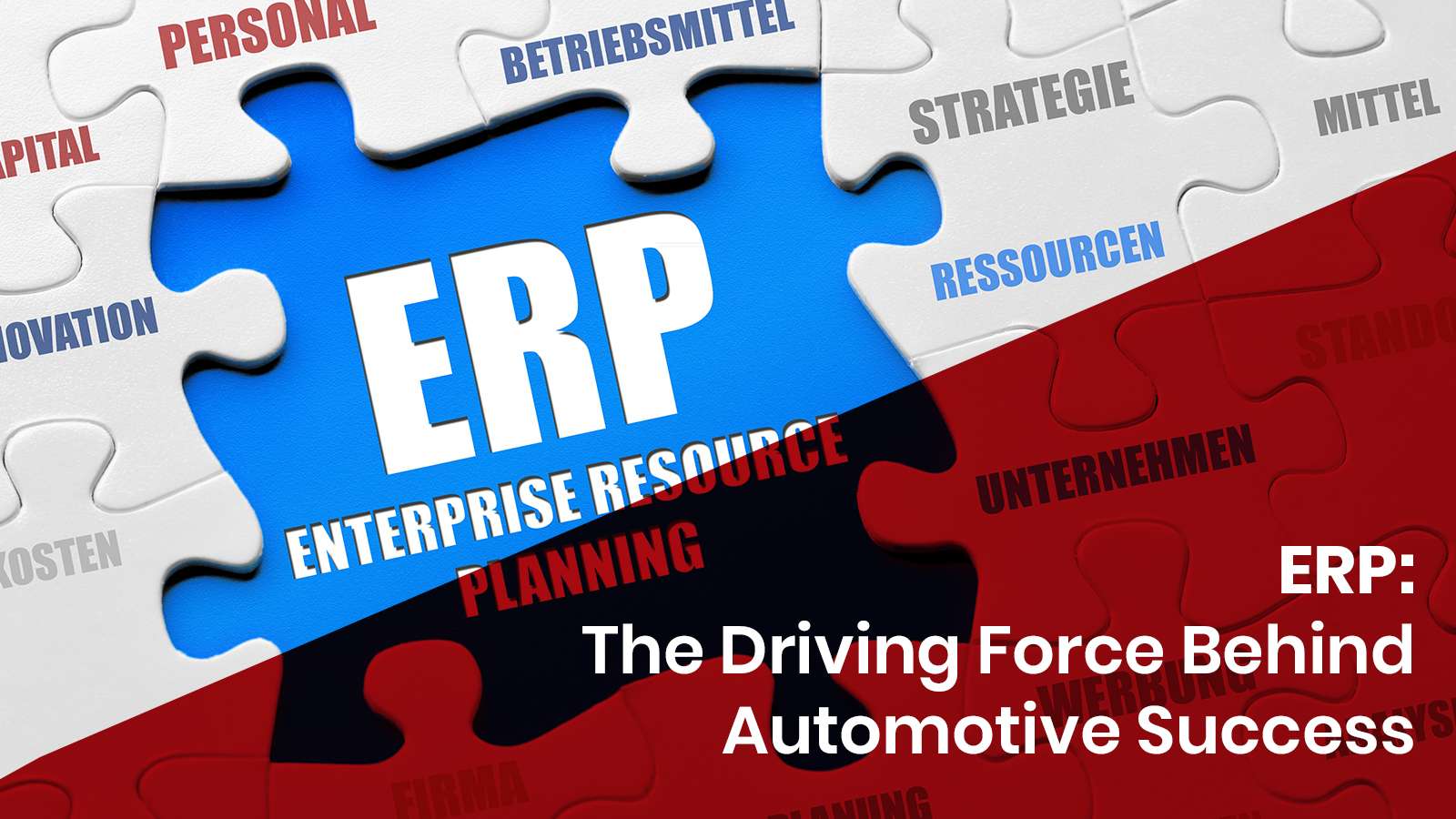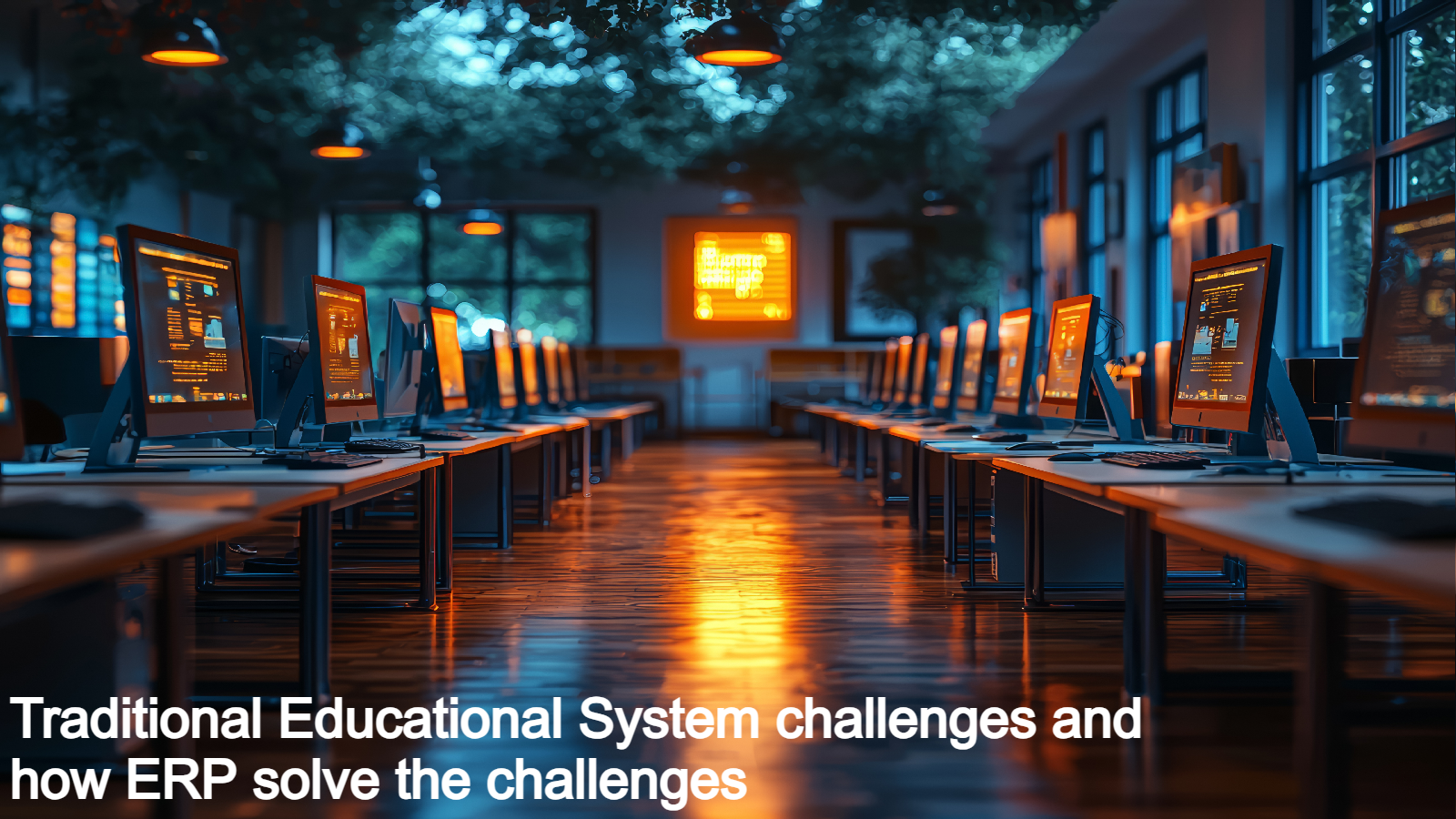How ERP Transforms Automotive Processes
The world of automobiles is very fast-paced and competitive. To succeed, efficiency and seamless operations are crucial. With its network of suppliers, manufacturers, dealers, and numerous processes, keeping track of everything is challenging.
Enterprise Resource Planning software has emerged as a valuable tool in the automobile industry. ERP Automotive has become a game-changer, streamlining processes, optimizing resource utilization, and propelling automotive companies toward a future of innovation and growth.
What is ERP?
ERP is a comprehensive business management software that integrates and automates various core functions of an organization, from supply chain management and manufacturing to finance and customer relationship management (CRM).
ERP provides a centralized platform for data, gives real-time information, and enables informed decisions through effective communication and collaboration across different departments of a business.
How does ERP help in the automotive industry?
The automotive industry operates on a global scale, involving complex supply chains, diverse product lines, and strict quality standards. ERP plays a pivotal role by:
1. Streamlining Supply Chain Management:
By connecting manufacturers with suppliers, ERP ensures that raw materials and components are obtained on time. It also optimizes inventory levels, reduces stockouts, and facilitates efficient production planning.
Example: Toyota Motor Corporation, a leading global automaker, utilizes ERP to manage its vast supply chain network, ensuring a steady flow of components and materials to its manufacturing plants worldwide.
2. Enhancing Manufacturing Efficiency:
The integration of production processes is a vital aspect of ERP. Through this integration, real-time visibility into production schedules, resource allocation, and quality control is possible. This enables manufacturers to identify bottlenecks, optimize production flow, and minimize downtime.
Example: General Motors, a renowned American automaker, employs ERP to streamline its manufacturing processes, reducing production time and improving overall efficiency.
3. Improving Quality Control:
Through tracking defects, corrective actions, and continuous improvement, ERP integrates quality management modules, ensuring that products meet rigid standards throughout the manufacturing process.
Example: BMW, a premium German automaker, utilizes ERP to maintain its high-quality standards, ensuring that every vehicle produced meets the company’s strict specifications.
4. Enhancing Customer Relationship Management:
ERP integrates customer data from sales, service, and support functions, providing a 360-degree view of customer interactions. This enables manufacturers to personalize customer experiences, address concerns promptly, and foster long-term loyalty.
Example: Ford Motor Company, an iconic American automaker, leverages ERP to gain a deeper understanding of its customers, enabling it to provide tailored services and build stronger customer relationships.
5. Gaining Real-Time Insights:
ERP provides real-time data from across the organization, enabling informed decision-making. Manufacturers can analyze sales trends, identify market opportunities, and make proactive adjustments to their strategies.
Example: Hyundai Motor Group, a South Korean automotive conglomerate, utilizes ERP to gain real-time insights into its operations, allowing it to make data-driven decisions that optimize performance and profitability.
ERP: A Catalyst for Automotive Innovation
As the automotive industry embraces Industry 4.0 and the adoption of advanced technologies, ERP is evolving to support innovations.
1. IoT Integration:
The integration of ERP systems with Internet of Things (IoT) devices, allows the collecting of real-time data from sensors on manufacturing equipment and vehicles. This data can be analyzed to optimize production processes, predict maintenance needs, and enhance product performance.
Example: Volkswagen, a German automotive giant, is integrating ERP with IoT sensors to monitor its manufacturing processes in real-time, enabling it to identify potential issues and make proactive adjustments.
2. Big Data Analytics:
Incorporating big data analytics functions into ERP systems makes it possible for manufacturers to review an abundance of data both internally and externally. They provide crucial information that could be used in new product development, supply-chain management, and targeted advertising of products.
Example: Fiat Chrysler Automobiles, an Italian-American automaker, utilizes ERP and big data analytics to identify customer preferences and buying patterns, allowing it to develop targeted marketing campaigns and enhance customer satisfaction.
3. Artificial Intelligence (AI) Integration:
AI is being integrated into ERP systems to automate tasks, predict demand trends, and make intelligent recommendations. This can lead to improved efficiency, reduced costs, and enhanced decision-making.
Example: Volvo Cars, a Swedish automaker, is exploring the integration of AI into its ERP system to automate tasks such as inventory management and supply chain optimization, freeing up human resources for more strategic initiatives.
ERP: Shaping the Future of Automotive Excellence
ERP has become an indispensable tool for automotive companies, enabling them to streamline operations, optimize resource utilization, and enhance customer satisfaction. As the industry embraces new technologies and adapts to changing market dynamics, ERP will continue to evolve, playing a pivotal role in shaping the future of automotive excellence.
Elvis Automobile ERP is specifically designed for the automotive industry. With modules such as logistics management, employee management, order management, service management, and inventory management, Elvis Automobile ERP is the perfect scalable and customizable software for your automobile business.
For more information or to answer any queries, contact us for a free consultation.
Frequently Asked Questions (FAQs)
What is ERP, and how does it relate to the automotive industry?
Enterprise Resource Planning (ERP) is a comprehensive software solution that integrates various business processes. In the automotive industry, ERP plays a pivotal role in streamlining operations, enhancing efficiency, and driving overall success.
How does ERP contribute to operational efficiency in the automotive sector?
ERP systems streamline operations by providing a unified platform for managing diverse processes such as supply chain, production, distribution, and customer service. This integration leads to increased efficiency and reduced operational costs.
What are the key features of ERP systems that benefit automotive businesses?
ERP systems for the automotive industry typically include features such as supply chain management, production planning, inventory control, financial management, and customer relationship management (CRM).
Can ERP systems be customized to meet the specific needs of automotive companies?
Yes, ERP systems are often customizable to adapt to the unique requirements of automotive businesses. Customization allows companies to tailor the software to their specific processes and workflows.
What role does ERP play in cost reduction for automotive companies?
ERP contributes to cost reduction by optimizing operations, improving supply chain efficiency, and providing insights for better decision-making. Studies show that companies with effective ERP solutions experience a significant decrease in operational costs.








